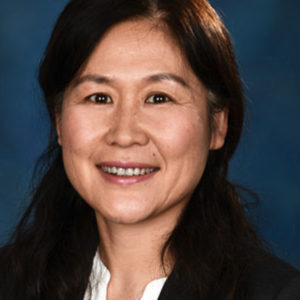Session Abstract – PMWC 2025 Silicon Valley
Track Chair: Adrian Lee, UPMC
- PMWC Award Ceremony
Pioneer Honoree: Victor Velculescu, Johns Hopkins
Luminary Honoree: Nicola Aceto, ETH Zurich
- Keynote: Early Detection of Cancer using Cell-free DNA Fragmentomes
- Victor Velculescu, Johns Hopkins - Keynote: The Power of a Blood Sample: Predictive Diagnostics and Transforming Healthcare
- Matthew Rabinowitz, Natera - Improving Sensitivity of MRD and MCED - Tumor-agnostic vs. Tumor-informed ctDNA Approaches
Chair: Adrian Lee, University of Pittsburgh
- Marija Balic, UPMC
- Ola Carl Landgren, University of Miami
- Carl Barrett, Precede Biosciences
- Jonathan Beer, BMS
- Innovative Approaches in Liquid Biopsy
Chair: Victor Velculescu, Johns Hopkins
- Adam Widman, MSKCC
- Brian Hashemi, Novigenix
- Sequencing Accuracy in Early Detection and MRD (PANEL)
Chair: Alex Sockell, PacBio
- James Hadfield, AstraZeneca
- Keynote: Keynote: Circulating Tumor Cells
- Nicola Aceto, ETH Zurich - Circulating Tumor Cells: The New Frontier
Chair: Nicola Aceto, ETH Zurich
- Min Yu, University of Maryland School of Medicine
- Matteo Ligorio, UTSW - Precision Liquid Biopsies: Innovations Across the Cancer Continuum – From Early Detection to Long-Term Monitoring
Chair: Tom Beer, Exact Sciences
- Elizabeth (Betsy) O’Donnell, Dana Farber Cancer Institute
- Arnaud Papin, Merck
- PMWC Showcase
- Wendy Winckler, Droplet Biosciences - Multi-Cancer Early Detection: Innovations and Real-World Evidence (PANEL)
Chair: Peter Bach, Delfi Dx
- Joshua Cohen, Haystack
- Lauren Leiman, BLOODPAC
- Eric Klein, Grail Bio
- Tom Beer, Exact Sciences - PMWC Showcase
- Varsha Rao, Claret Bio - PMWC Award Ceremony and Keynote
Luminary Honoree: Matthew Rabinowitz, Natera
Speaker Profile
Biography
Dr. Velculescu led the first genome wide sequence analysis in human cancers, identifying key genes and pathways dysregulated in tumorigenesis. He developed methods for global gene expression analyses and coined the word transcriptome" to describe the patterns that could now be obtained in cancer and other cells. These analyses identified a variety of genes not previously known to be involved in neoplasia, including PIK3CA as one of the most highly mutated genes in human cancer. His team's discoveries have led to new FDA approved therapies against PI3K and IDH1, and diagnostic tests for comprehensive tumor profiling. More recently, his group has created noninvasive machine learning liquid biopsy approaches for early detection and monitoring of cancer patients. His work has provided new paradigms for understanding human cancer that have benefited patients worldwide. He has been a Founder and CoCEO of Personal Genome Diagnostics and is Founder and CEO of Delfi Diagnostics.
Speaker Profile
Biography
Dr. Adrian Lee is the Pittsburgh Foundation Chair and Director of the Institute for Precision Medicine (IPM), a joint effort by UPMC and the University of Pittsburgh to move biomedical research into personalized well-being and clinical care. He is also Professor of Pharmacology Chemical Biology and Human Genetics at UPMC Hillman Cancer Center. Dr. Lee received B.Sc. and Ph.D. degrees in England, and came to San Antonio, Texas for his postdoctoral studies. He was subsequently recruited to Baylor College of Medicine and to the University of Pittsburgh in 2010. The goal of Dr. Lees research laboratory is to translate basic cell and molecular research findings into the understanding and treatment of breast cancer. Dr Lee has published over 180 peer reviewed research articles. His laboratory is supported by funding from the NIH, Department of Defense, Susan G. Komen for the Cure, Breast Cancer Research Foundation, and other sources.
Speaker Profile
Biography
Dr. Velculescu led the first genome wide sequence analysis in human cancers, identifying key genes and pathways dysregulated in tumorigenesis. He developed methods for global gene expression analyses and coined the word transcriptome" to describe the patterns that could now be obtained in cancer and other cells. These analyses identified a variety of genes not previously known to be involved in neoplasia, including PIK3CA as one of the most highly mutated genes in human cancer. His team's discoveries have led to new FDA approved therapies against PI3K and IDH1, and diagnostic tests for comprehensive tumor profiling. More recently, his group has created noninvasive machine learning liquid biopsy approaches for early detection and monitoring of cancer patients. His work has provided new paradigms for understanding human cancer that have benefited patients worldwide. He has been a Founder and CoCEO of Personal Genome Diagnostics and is Founder and CEO of Delfi Diagnostics.
Speaker Profile
Biography
Joshua Cohen is a co-founder and the Chief Innovation Officer of Haystack Oncology. He is also conducts liquid biopsy research with Drs. Bert Vogelstein, Kenneth Kinzler, and Nickolas Papadopoulos at the Johns Hopkins Ludwig Center. Josh has invented and developed several liquid biopsy technologies, both for cancer screening and minimal residual disease detection, including the technology upon which Haystacks Duo chemistry is based. His liquid biopsy research served as the basis for a landmark prospective interventional clinical trial demonstrating, for the first time, the use of circulating tumor DNA analyses for the detection of minimal residual disease and selection of adjuvant chemotherapy in stage II colorectal cancer patients.
Speaker Profile
Biography
Eric A. Klein is a Distinguished Scientist at GRAIL. Previously he served as the Andrew C. Novick Distinguished Professor and Chair of the Glickman Urological and Kidney Institute and Lerner College of Medicine of the Cleveland Clinic, where he was also a member of the Department of Cancer Biology of the Cleveland Clinic Lerner Research Institute, the Taussig Cancer Institute, and the Genitourinary Malignancies Program in the Case Comprehensive Cancer Center. Dr. Kleins clinical and research interests focused on prostate cancer with an emphasis on genomics and clinical trials. Most recently his work has focused on the clinical development of multicancer early detection tests. Dr. Klein was a Fellow in the Distinguished Careers Institute at Stanford University in 2022 and joined GRAIL in 2023.
Speaker Profile
Biography
At BloodPAC Lauren is focused on creating an open database for liquid biopsies to accelerate the development of safe and effective blood profiling diagnostic technologies for patient benefit. Prior, she was the Senior Director of External Partnerships at White House Cancer Moonshot Task Force during the Obama Administration. Previously, Lauren was a Senior Advisor for the Melanoma Research Alliance and Director of Philanthropy at Elysium Management LLC in New York City. From 2008-2010, Lauren worked for the Millennium Promise Alliance, where she led the major gifts fundraising effort and spent significant time in sub-Saharan Africa. Lauren was also the head of marketing and investor relations at Steel Partners, LP, an activist hedge fund investing globally. She received her undergraduate degree in communications from the University of Pennsylvania. She also holds an MBA from the University of North Carolinas Kenan-Flagler Business School and a masters degree in public relations and corporate communications from NYU.
Speaker Profile
Biography
Nicola Aceto is Full Professor of Molecular Oncology at the ETH Zurich. Dr. Aceto
completed his training at the Friedrich Miescher Institute (FMI) in Basel, Switzerland,
at the Massachusetts General Hospital Cancer Center and Harvard Medical School,
and at the Broad Institute of MIT and Harvard in Boston, USA.
Research in the Aceto lab has significantly advanced the understanding of cancer
metastasis, focusing on the dynamic behavior of CTCs in the bloodstream and
including investigations of their biology and vulnerabilities. Among the most notable
achievements are the characterization of CTC clusters and the impact of the
circadian rhythm in breast cancer metastasis. Some of these results form the
scientific bases for ongoing clinical trials. Dr. Aceto continues to contribute to the
scientific community through his extensive research, aiming to improve cancer
diagnostics and therapeutic strategies. His efforts are instrumental in advancing
precision medicine and improving outcomes for cancer patients.
Speaker Profile
Biography
Dr. Min Yu is an esteemed researcher and her groundbreaking work focuses on understanding the mechanisms of cancer metastasis, particularly through the study of circulating tumor cells (CTCs). Dr. Yu's research has been pivotal in uncovering how these cells contribute to the spread of cancer and identifying potential therapeutic targets to prevent metastasis. Dr. Yu received her Ph.D. in genetics from SUNYStony Brook and completed her postdoctoral training at Massachusetts General Hospital of Harvard Medical School. At the University of Maryland, Dr. Yu leads a research team dedicated to exploring the molecular and cellular underpinnings of CTCs. Her work has been published in numerous high-impact journals, highlighting her contributions to the field. Her dedication to cancer research and her contributions to understanding CTCs make her a highly respected figure in the scientific community.
Speaker Profile
Biography
At BloodPAC Lauren is focused on creating an open database for liquid biopsies to accelerate the development of safe and effective blood profiling diagnostic technologies for patient benefit. Prior, she was the Senior Director of External Partnerships at White House Cancer Moonshot Task Force during the Obama Administration. Previously, Lauren was a Senior Advisor for the Melanoma Research Alliance and Director of Philanthropy at Elysium Management LLC in New York City. From 2008-2010, Lauren worked for the Millennium Promise Alliance, where she led the major gifts fundraising effort and spent significant time in sub-Saharan Africa. Lauren was also the head of marketing and investor relations at Steel Partners, LP, an activist hedge fund investing globally. Lauren received her undergraduate degree in communications from the University of Pennsylvania’s Annenberg School. She also holds an MBA in international business from the University of North Carolina’s Kenan-Flagler Business School and a master’s degree in public relations and corporate communications from NYU.
Speaker Profile
Biography
Nicola Aceto is Full Professor of Molecular Oncology at the ETH Zurich. Dr. Acetocompleted his training at the Friedrich Miescher Institute (FMI) in Basel, Switzerland,at the Massachusetts General Hospital Cancer Center and Harvard Medical School,and at the Broad Institute of MIT and Harvard in Boston, USA.Research in the Aceto lab has significantly advanced the understanding of cancermetastasis, focusing on the dynamic behavior of CTCs in the bloodstream andincluding investigations of their biology and vulnerabilities. Among the most notableachievements are the characterization of CTC clusters and the impact of thecircadian rhythm in breast cancer metastasis. Some of these results form thescientific bases for ongoing clinical trials. Dr. Aceto continues to contribute to thescientific community through his extensive research, aiming to improve cancerdiagnostics and therapeutic strategies. His efforts are instrumental in advancingprecision medicine and improving outcomes for cancer patients.
Speaker Profile
Biography
Nicola Aceto is Full Professor of Molecular Oncology at the ETH Zurich. Dr. Acetocompleted his training at the Friedrich Miescher Institute (FMI) in Basel, Switzerland,at the Massachusetts General Hospital Cancer Center and Harvard Medical School,and at the Broad Institute of MIT and Harvard in Boston, USA.Research in the Aceto lab has significantly advanced the understanding of cancermetastasis, focusing on the dynamic behavior of CTCs in the bloodstream andincluding investigations of their biology and vulnerabilities. Among the most notableachievements are the characterization of CTC clusters and the impact of thecircadian rhythm in breast cancer metastasis. Some of these results form thescientific bases for ongoing clinical trials. Dr. Aceto continues to contribute to thescientific community through his extensive research, aiming to improve cancerdiagnostics and therapeutic strategies. His efforts are instrumental in advancingprecision medicine and improving outcomes for cancer patients.
Speaker Profile
Biography
Dr. Ligorio focuses on the intricate biology of human tumors. His research aims to understand the mechanisms of tumor initiation, progression, and metastasis, particularly emphasizing the role of circulating tumor cells (CTCs) and tumor microenvironments.Dr. Ligorio's postdoctoral training in the laboratory of Dr. David T. Ting, MD, at the Massachusetts General Hospital was a pivotal period. His investigations into the molecular and cellular mechanisms of cancer metastasis, particularly his groundbreaking work on the tumor-stroma interaction, have provided crucial insights into the influence of the tumor microenvironment on cancer progression and therapy resistance.In addition to his research, Dr. Ligorio is passionate about teaching and mentoring the next generation of scientists. He is actively involved in collaborating with researchers worldwide.Dr. Ligorio's contributions to cancer biology have been recognized through multiple awards and publications in high-impact scientific journals. His work continues to pave the way for novel therapeutic strategies to improve patient outcomes.
Speaker Profile
Biography
Health policy and payment expert, pulmonary physician, and lung cancer epidemiologist, Peter has devoted his career to repairing defects in the healthcare delivery system that impede access to high-quality cancer care and working to ameliorate healthcares cost crisis. His work spans seminal studies including that identification of racial gaps in lung cancer care, the development of the first lung cancer risk prediction model (the Bach model), lead authorship on multiple lung screening guidelines, and definitional work on pharmaceutical pricing and value. Peter previously served as Senior Adviser at the US Centers for Medicare Medicaid Services and mentor on many National Institutes of Health K awards. He has been elected to the National Academy of Medicine, American Society for Clinical Investigation, and the Johns Hopkins Society of Scholars.
Speaker Profile
Biography
Dr. Velculescu led the first genome wide sequence analysis in human cancers, identifying key genes and pathways dysregulated in tumorigenesis. He developed methods for global gene expression analyses and coined the word transcriptome" to describe the patterns that could now be obtained in cancer and other cells. These analyses identified a variety of genes not previously known to be involved in neoplasia, including PIK3CA as one of the most highly mutated genes in human cancer. His team's discoveries have led to new FDA approved therapies against PI3K and IDH1, and diagnostic tests for comprehensive tumor profiling. More recently, his group has created noninvasive machine learning liquid biopsy approaches for early detection and monitoring of cancer patients. His work has provided new paradigms for understanding human cancer that have benefited patients worldwide. He has been a Founder and CoCEO of Personal Genome Diagnostics and is Founder and CEO of Delfi Diagnostics.
Speaker Profile
Biography
Dr. Sockell is passionate about advancing personalized medicine through technology development. She is currently the Segment Market Lead for Cancer Genomics at PacBio, where she directs strategic collaborations and informs commercial and product strategy to demonstrate the value of PacBio technology for cancer genomics applications. During her PhD with Christina Curtis and Polly Fordyce at Stanford, she developed a novel microwell platform for high-throughput characterization of organoid models of tumor evolution, and also has experience as a biotech consultant and investor.
Speaker Profile
Biography
James leads the search and evaluation of novel epigenomics and liquid biopsy technologies in Translational Medicine at AstraZeneca. His role involves building internal assay capabilities and fostering external collaborations to support clinical studies. His liquid biopsy focus is on MRDmonitoring and, to a lesser extent, cancer early detection, testing methods with contrived and clinical samples; his epigenomics focus is on DNA methylation. His publications include: Breast cancer molecular taxonomy (Nature 2012), ctDNA amplicon (STM 2012) exome (Nature 2013), and an sWGS CNV pipeline for WES (Cell 2016); and most recently the MATRIX commentary (JCO 2024). Before AstraZeneca, he led the Genomics Core at the CRUK Cambridge Institute and has over 20 years of experience with genometranscriptomesingle-cell technologies. He co-authored major cancer genomics papers. An NGS community thought-leader and occasional blogger, he lives in Wymondham, Norfolk, with his family.
Speaker Profile
Biography
Dr. Adam Widman is a breast medical oncologist and an expert in liquid biopsy platform development and clinical application at Memorial Sloan Kettering Cancer Center (MSKCC). His clinical practice is centered around treating patients with early-stage and advanced breast cancer. Dr. Widman is deeply involved in developing liquid biopsy tools for ultrasensitive cancer monitoring through plasma whole genome sequencing, machine learning and advanced statistics.
Speaker Profile
Biography
Dr. Adrian Lee is the Pittsburgh Foundation Chair and Director of the Institute for Precision Medicine (IPM), a joint effort by UPMC and the University of Pittsburgh to move biomedical research into personalized well-being and clinical care. He is also Professor of Pharmacology Chemical Biology and Human Genetics at UPMC Hillman Cancer Center. Dr. Lee received B.Sc. and Ph.D. degrees in England, and came to San Antonio, Texas for his postdoctoral studies. He was subsequently recruited to Baylor College of Medicine and to the University of Pittsburgh in 2010. The goal of Dr. Lees research laboratory is to translate basic cell and molecular research findings into the understanding and treatment of breast cancer. Dr Lee has published over 180 peer reviewed research articles. His laboratory is supported by funding from the NIH, Department of Defense, Susan G. Komen for the Cure, Breast Cancer Research Foundation, and other sources.
Speaker Profile
Biography
Dr. Marija Balic is a Professor of Medicine at the University of Pittsburgh School of Medicine, where she specializes in hematology and oncology. She holds key leadership roles as the Co-Director of the Magee Womens Cancer Program and the Clinical Co-Leader of the Womens Cancer Research Center (WCRC). In these capacities, Dr. Balic focuses on the treatment and research of womens cancers, with a particular emphasis on breast and gynecologic cancers.Additionally, Dr. Balic serves as the Scientific Director of the NSABP Foundation Translational Research Program, where she is involved in the oversight of research initiatives aimed at translating scientific discoveries into clinical applications. Her academic training is complemented by an MBA, which enhances her ability to integrate clinical practice with healthcare management. Dr. Balics work is central to advancing personalized medicine and improving outcomes for patients with womens cancers.
Speaker Profile
Biography
Dr. Beer is an internationally recognized leader, holding appointments as deputy director of the Knight Cancer Institute, Chief Medical Officer at OHSUs Knight Cancer Institute Cancer Early Detection Advanced Research Center, professor in the OHSU School of Medicine, head of the Prostate Cancer Research Program, and the Grover C. Bagby Endowed Chair for Prostate Cancer Research prior to joining Exact. He has also authored and co-authored more than 280 articles, playing a leading role in establishing a new global standard of care for patients. In addition to his role at Exact Sciences, Dr. Beer is continuing as an adjunct professor of medicine and sees patients with prostate cancer at OHSU.
Speaker Profile
Biography
Dr. Beer is an internationally recognized leader, holding appointments as deputy director of the Knight Cancer Institute, Chief Medical Officer at OHSUs Knight Cancer Institute Cancer Early Detection Advanced Research Center, professor in the OHSU School of Medicine, head of the Prostate Cancer Research Program, and the Grover C. Bagby Endowed Chair for Prostate Cancer Research prior to joining Exact. He has also authored and co-authored more than 280 articles, playing a leading role in establishing a new global standard of care for patients. In addition to his role at Exact Sciences, Dr. Beer is continuing as an adjunct professor of medicine and sees patients with prostate cancer at OHSU.
Speaker Profile
Biography
Dr. C. Ola Landgren is a board-certified hematologist-oncologist and he has published more than 500 papers and chapter books with a primary focus on multiple myeloma, MGUS (monoclonal gammopathy of undetermined significance), and smoldering myeloma. Dr. Landgrens research focuses the mechanisms underlying progression from precursor disease to frank malignancy, underlying mechanisms of disease responseresistance, role of MRD (minimal residual disease) negativity, biological mechanisms associated with sustained MRD negativity, identification of novel treatment targets, early drug development, and identification of novel biomarkers. Prior to joining University of Miami, he served as Chief of the Myeloma Service at Memorial Sloan Kettering Cancer Center in New York City, and prior to that he was the Chief of the Multiple Myeloma Section at the National Cancer Institute in Bethesda, Maryland.
Speaker Profile
Biography
Wendy Winckler has over 20 years of cancer genomics experience, including serving as CSO for Glympse Bio. She led Oncology Next Generation Diagnostics at Novartis and numerous early cancer genome studies at the Broad Institute. Dr. Winckler holds a BS in microbiology and molecular genetics from UCLA and a PhD in genetics from Harvard.
Talk
Lymph Liquid Biopsy: Enabling Precision Adjuvant Decisions
Postoperative lymphatic exudate is a novel proximal biofluid for detecting MRD. Lymph significantly outperforms time-matched plasma for recurrence identification in head and neck cancer, particularly for locoregional recurrence. Accurate MRD identification in patients with lower risk pathologic features suggests that lymph testing has potential to augment traditional pathology and provide more personalized adjuvant treatment decision-making.
Speaker Profile
Biography
Dr. Varsha Rao is the VP of Partnerships and Clinical Affairs at ClaretBio. She oversees the clinical applications of the novel next-generation sequence assays and analytical pipelines developed at ClaretBio with a main focus on evaluating the utility of cell-free DNA fragmentation patterns in cancer progression and treatment response monitoring. Before joining ClaretBio, she was a Research Scientist at Stanford University School of Medicine in Prof Michael Snyder's lab. As a part of multiple consortia such as the Integrative Personalized Omics Profiling Project, the Human Microbiome Project and the NASA Twins Study she has worked on longitudinal multiomic analyses, focusing on applying transcriptomics and liquid biopsy approaches to understand nuances of metabolic diseases, cancer, infectious disease and general health. She received her PhD in Molecular and Cellular Biology from University of Maryland Baltimore County in 2012.
Talk
cfDNA Fragmentomics with ClaretBio's SRSLY
In this talk, Dr. Rao will describe the utility of ClaretBio's single-stranded library preparation SRSLY, in cfDNA fragmentomics using a combination of cfDNA length profile and native termini. This approach allow capture of disease informative, differential signal at low-depth of sequencing.
Speaker Profile
Biography
Dr. Elizabeth "Betsy" O'Donnell, MD, is a hematologist and oncologist at Dana-Farber Cancer Institute, focusing on improving the quality of life for cancer patients and survivors. She is actively involved in clinical trials aimed at enhancing survivorship care, particularly exploring the role of lifestyle interventions such as exercise and nutrition in recovery. Her research also extends to innovative treatments for hematologic malignancies, where she seeks to optimize long-term outcomes for survivors. Dr. O'Donnell received her MD from Georgetown University and completed her fellowship at Dana-Farber.
Speaker Profile
Biography
Arnaud Papin has been instrumental in establishing a precision medicine strategy aimed at supporting Merck early-stage cancer launches through advancements in early cancer detection and the management of minimal residual disease (MRD).In his role, Arnaud has led strategic assessments to identify unmet medical needs in key tumor types. He has played a crucial role in fostering cross-functional collaboration and facilitating upskilling initiatives.His leadership extends to technology assessment and prioritization, focusing on innovative approaches ranging from single and multi-cancer early detection, AI in radiology, pathology and electronic medical records. Arnaud actively identifies partnership opportunities to accelerate the clinical adoption of these technologies and is engaged in several influential consortia, including the LCPN, the BloodPac, and the MCED consortium.Separately, he led the innovation and commercial strategy in the area of ctDNA dynamics and minimal residual disease through both tumor-informed and tumor-naive approaches, paving the way to clinical adoption.
Speaker Profile
Biography
Jonathan Beer specializing in precision medicine and translational sciences. In this role, he leads diagnostic strategies and the development of companion diagnostics (CDx) for global investigational new drug clinical trials across various technologies and sample types including liquid biopsy. His expertise encompasses clinical trial applications and demonstrating clinical utility, with a focus on minimal residual disease (MRD) and multi-cancer early detection (MCED) through circulating tumor DNA (ctDNA) approaches. Jonathan's work is pivotal in advancing diagnostic strategies that support innovative therapies in oncology for BMS.
Speaker Profile
Biography
Dr. J. Carl Barrett is a renowned professional in the field of translational medicine and diagnostics with over 17 years of experience in drug development and technology advancement. In his previous role as the Vice President and Head of Oncology Translational Medicine at AstraZeneca Pharmaceuticals, he led a global team, spearheading biomarker strategy and translational sciences to support oncology drug development. Dr. Barrett's career also includes leadership positions at Novartis Institutes for BioMedical Research and the National Cancer Institute. He has made significant contributions to the field, with over 600 publications to his name and a reputation for mentoring future leaders in the pharmaceutical and biomedical sectors. Driven by a passion for lifelong learning and effective communication, he continues to shape the landscape of healthcare innovation.
Speaker Profile
Biography
Dr. Matthew Rabinowitz is a pioneer in precision medicine, known for advancing transformative innovations in diagnostic technologies. As the co-founder and executive chairman of Natera, he has led the development of groundbreaking cell-free DNA-based tests that are reshaping cancer care, women's health, and organ transplant monitoring. His visionary work, including the launch of industry-leading tests like Signatera and Panorama, has set new standards for personalized medicine, improving patient outcomes worldwide. Dr. Rabinowitz's contributions reflect a commitment to pushing the boundaries of science and technology to make healthcare more precise and impactful.
Speaker Profile
Biography
Dr. Matthew Rabinowitz is a pioneer in precision medicine, known for advancing transformative innovations in diagnostic technologies. As the co-founder and executive chairman of Natera, he has led the development of groundbreaking cell-free DNA-based tests that are reshaping cancer care, women's health, and organ transplant monitoring. His visionary work, including the launch of industry-leading tests like Signatera and Panorama, has set new standards for personalized medicine, improving patient outcomes worldwide. Dr. Rabinowitz's contributions reflect a commitment to pushing the boundaries of science and technology to make healthcare more precise and impactful.
Speaker Profile
Biography
Daniel Kim is an Assistant Professor in Biomolecular Engineering at the University of California Santa Cruz, a Visiting Assistant Professor in Dermatology at Stanford University School of Medicine, an Associate Member of the Canary Center at Stanford for Cancer Early Detection, and a Research Scholar of the American Cancer Society. His laboratory develops RNA technologies and tools for precision health, cancer early detection, and RNA medicine. His RNA research has been featured in Newsweek, Scientific American, and by the Director of the National Institutes of Health and has also been recognized by awards from the Damon Runyon Cancer Research Foundation, Cell Press, and the National Academy of Sciences.
Speaker Profile
Biography
Brian Hashemi is cofounder and Executive Chairman of Novigenix. A former NASA Principal Investigator and Researcher, Dr. Hashemi has extensive background in healthcare technology development and commercialization and has been an Assistant Professor at Baylor College of Medicine where he began his affiliation in the National Space Biomedical Research Institute. Brian holds a Ph.D. in Applied Physics from Cornell University in New York, and an MBA in Entrepreneurship from the Wharton School in Philadelphia.




























































